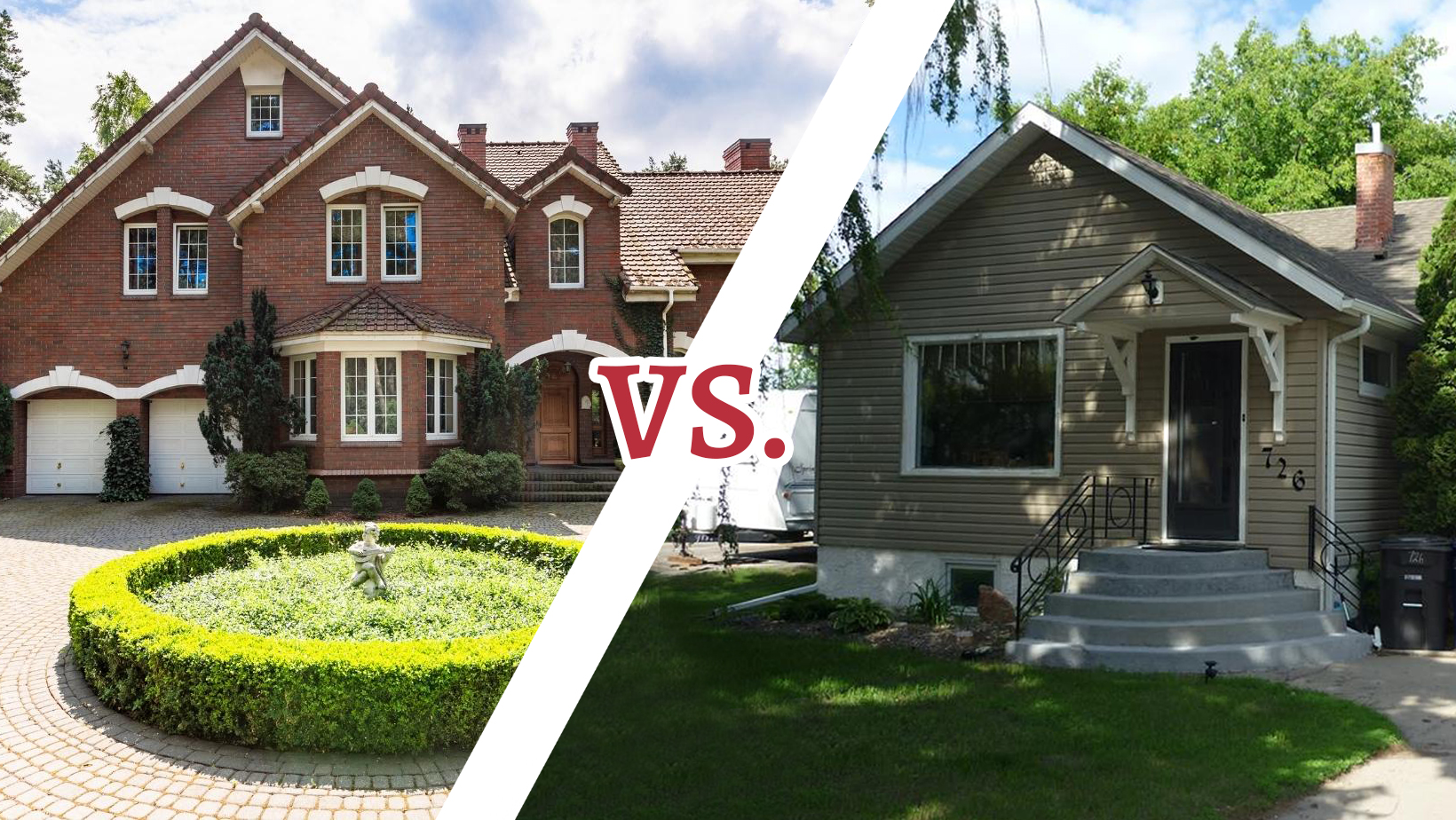Are you looking to upgrade your house? Maybe you “need” more space or want a newer home and a change in your local Humbolt and area scenery. The positive is that you gain square footage, but there can be many drawbacks, such as certain hidden costs that you may not have considered. It is true that you might be outgrowing your home as your family expands and a bigger house seems a very attractive option. However, before jumping in, it’s worth putting some additional thought into purchasing a new home. Let’s look into why bigger houses might not always be the better choice.
Look out for Higher Costs than the Mortgage
Everything is larger when you buy a bigger house. I don’t only mean the rooms but also the costs of maintaining the whole house. The mortgage is more costly and so is everything else. It’s best for you to be aware that purchasing a bigger home means:
- Higher property tax
- Higher closing costs
- Higher bill costs
- Higher renovation costs
- Higher furniture costs
- Higher repair and maintenance costs
- Higher home insurance
Altogether, these costs can add up quickly. Even though you have an excess of money now, that might not always be the case – with the way the current market is, things like job loss or illness could wreak havoc on an already tight budget. Before you consider buying a bigger house, get in touch with a financial adviser to discuss long-term goals, such as retirement plans and kids.
A Bigger House Doesn’t Always Mean a Better Investment
From Pandemic to recessions—we never know what the market will do in modern times. What was once an excellent investment and nest egg has now become an unsettled market. Many young people are no longer interested in purchasing a big home, settling for smaller minimalist living instead.
When it comes to homes, there is no sure-fire way to predict what will be a good investment for the future. Neighbourhood amenities and sense of community are constantly changing, which can also affect the home’s value. The current trends are projecting that with fewer buyers on the market, there will be a smaller pool of potential buyers when you are ready to sell.
Don’t Buy to be a Show-off
Before starting the search, make a list of priorities you want or need in a house. There are a lot of features that should rank higher on a list than a home being a status symbol. Therefore, forget impressing your friends and family with a magnificent home that you can’t comfortably afford; think about the whole picture. Some “bigger” home-buying details that you should consider are:
- Long term finances
- Location
- Amenities
- Homes Condition
- Environmental impact
This list is a loose guide. Of course, every buyer has their list of importance, but what shouldn’t change is being able to afford your next home purchase.
More Space Doesn’t Always = Usable Space
When viewing larger homes, enter each room and consider how you will use it. Open floor plans are on-trend, but some have so much wasted space that it’s hard to configure furniture to fill the whole room. Make sure to think about functionality over square footage. There is no need to invest in a property where rooms remain empty or unused. Do you really need 4 bedrooms for 2 adults? Or 2 living room spaces for everyday use?
Location vs. Price
The top consideration when purchasing a home is how much you can comfortably afford, and this will dictate what areas you can choose in your city or town. Location is a significant factor when choosing a home, such as safety, amenities, and even walkability. If you allow yourself to sacrifice location to purchase a bigger home, there’s a chance you might regret it later on.
Responsibilities Increase Along With the Size of Home
One of the best parts of owning a larger home is having all that space–that extra bathroom, the extra office space and even another living room. Think of your current home size, and then imagine how much extra cleaning, furniture, maintenance, and repairs the new one might have—for example, maintaining a more oversized yard to snow shovelling, roof repairs and broken furnaces. There’s a whole lot that goes into keeping a home liveable. It is possible to offload these responsibilities onto professionals, but that can get costly over time, so factor that in when considering purchasing a new place.
Can You Afford The Home of Your Dreams?
Once you meet with your mortgage lender, they will be able to give you a maximum dollar amount you can purchase a home with. This amount will always be at the top of what you can afford without considering food, gas or your bills. Take this number and reduce it by about 20-40% to accommodate for entertainment, inflation and whatever else life can throw your way. When making a sound investment with your house purchase, put more thought into the budget and less into sizing up.
Even beyond this list, there are so many factors to consider when purchasing a new place. Find a good financial advisor who will have your best interests at heart, and work with an experienced and qualified REALTOR® who can aid you in finding the right home for you!

 Facebook
Facebook
 X
X
 Pinterest
Pinterest
 Copy Link
Copy Link

